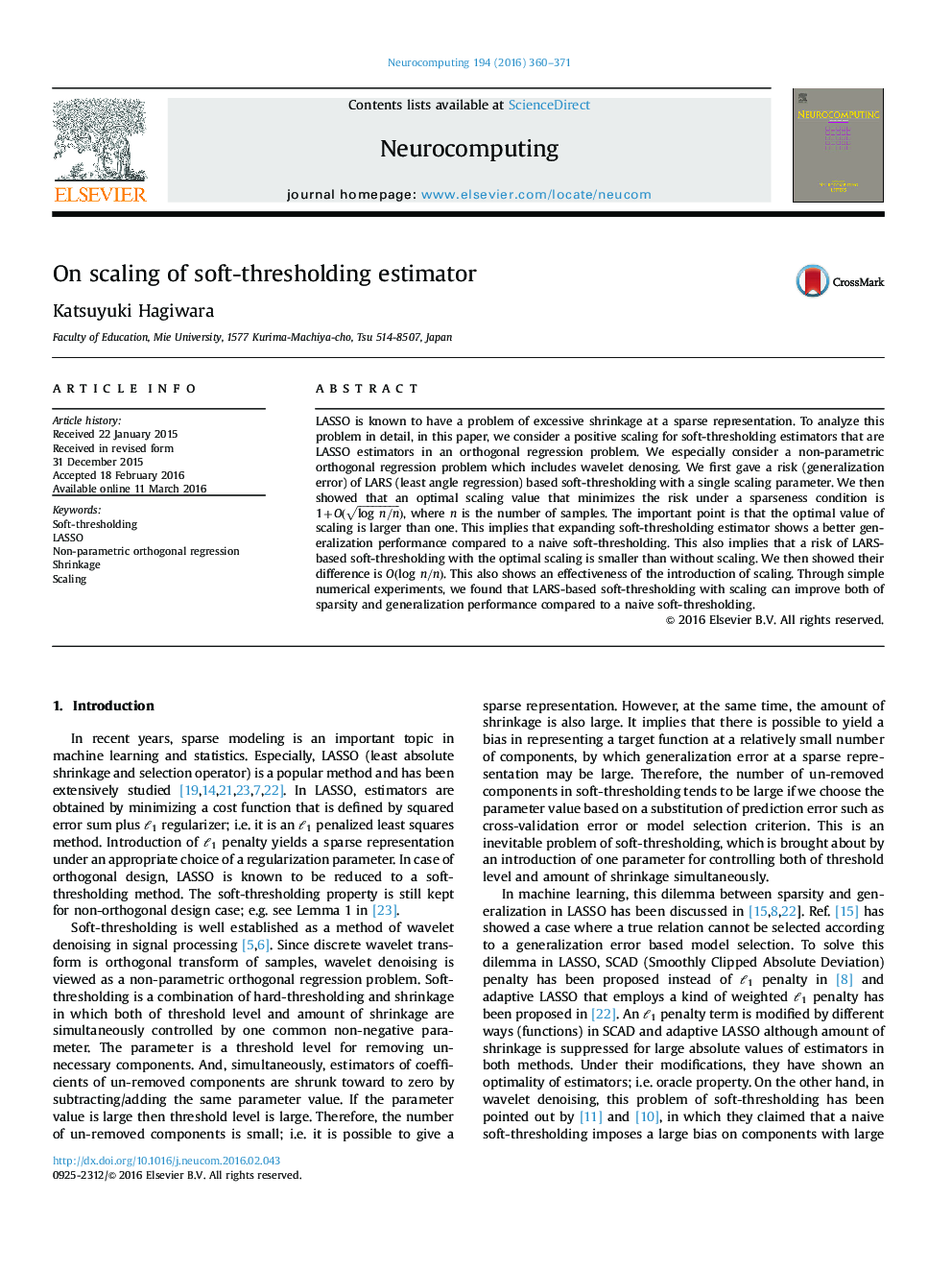| Article ID | Journal | Published Year | Pages | File Type |
|---|---|---|---|---|
| 408324 | Neurocomputing | 2016 | 12 Pages |
LASSO is known to have a problem of excessive shrinkage at a sparse representation. To analyze this problem in detail, in this paper, we consider a positive scaling for soft-thresholding estimators that are LASSO estimators in an orthogonal regression problem. We especially consider a non-parametric orthogonal regression problem which includes wavelet denosing. We first gave a risk (generalization error) of LARS (least angle regression) based soft-thresholding with a single scaling parameter. We then showed that an optimal scaling value that minimizes the risk under a sparseness condition is 1+O(logn/n), where n is the number of samples. The important point is that the optimal value of scaling is larger than one. This implies that expanding soft-thresholding estimator shows a better generalization performance compared to a naive soft-thresholding. This also implies that a risk of LARS-based soft-thresholding with the optimal scaling is smaller than without scaling. We then showed their difference is O(logn/n). This also shows an effectiveness of the introduction of scaling. Through simple numerical experiments, we found that LARS-based soft-thresholding with scaling can improve both of sparsity and generalization performance compared to a naive soft-thresholding.
